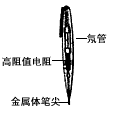问题
单项选择题
某服装厂(增值税一般纳税人)位于市区,6月发生下列业务:
(1)购入A面料,取得增值税发票价款50000元,税额8500元,支付采购运费500元,取得货物运输发票。
(2)进口B面料,关税税完税价格:36000元,关税税率5%,支付从港口到厂区运费1000元,取得国际货运代理发票。
(3)用B面料生产300件连衣裙,单位成本每件40元;将200件委托某商厦代销,要求商厦代销价150元/件(含税),当月月末收到商厦代销清单,售出100件。商厦与该厂结算金额15000元,另向商厦支付结算金额20%的销售手续费,用100件送给协作单位作为礼品。
(4)用A面料生产600件西装,单位成本每件100元,成本中外购比例60%(假设成本中不含运费),将其中100件发给本厂职工作为福利,将其中400件以每件180元的不含税批发价批发给某集团企业。30件因保管不善毁损。
本月取得的相关票据符合税法规定,并在当月通过认证和抵扣。
根据上述资料回答下列问题:
该企业进口环节交纳的符项税额合计为( )元。
A.6120
B.7160
C.8226
D.8466
答案
参考答案:C
解析: 该企业进口环节交纳的各项税额应纳进口关税=36000×5%=1800(元)应纳进口增值税=(36000+1800)×17%=6426(元)
进口环节税金合计=1800+6426=8226(元)

